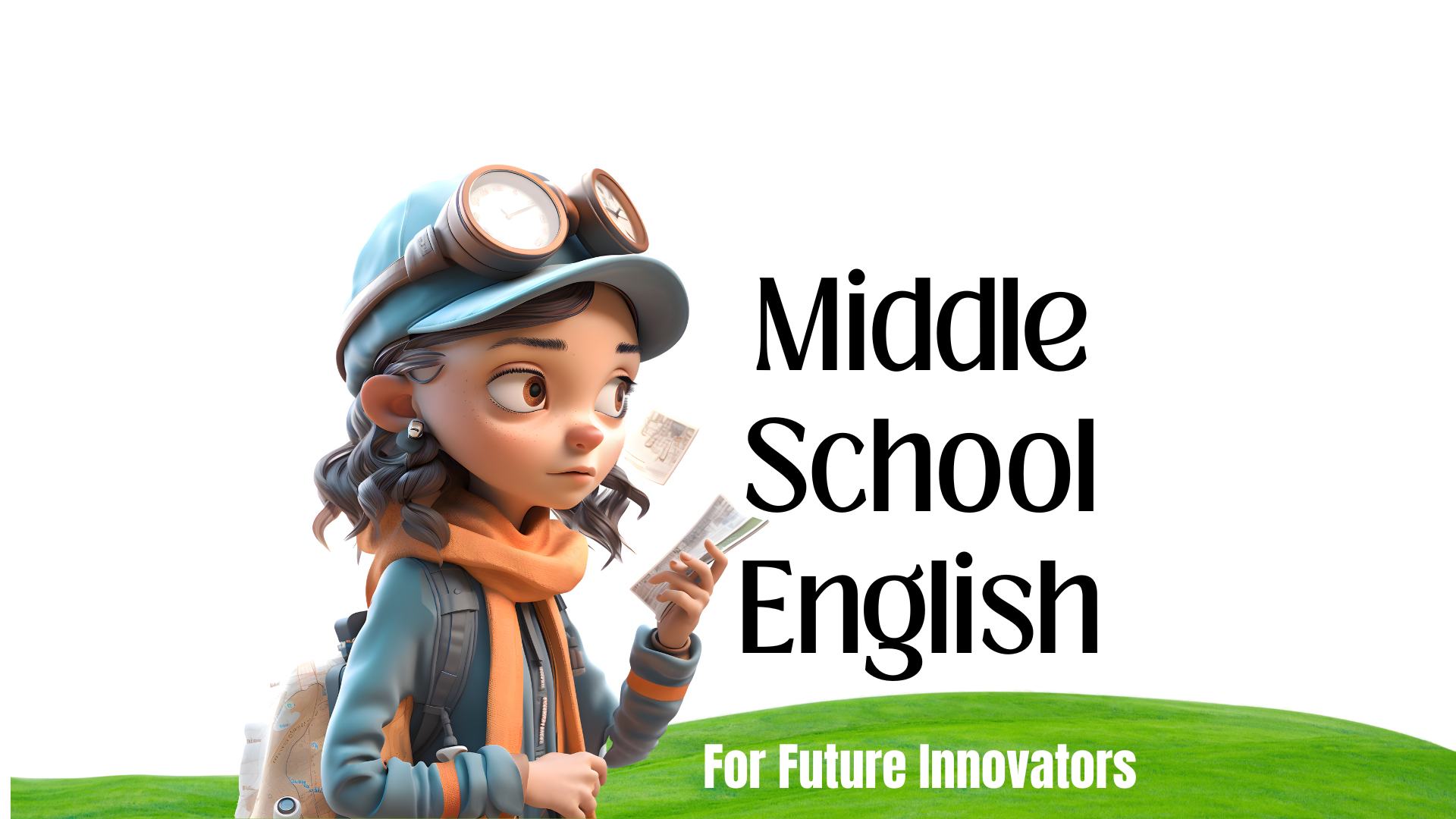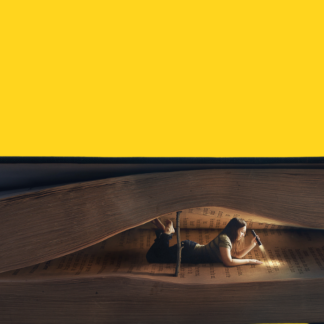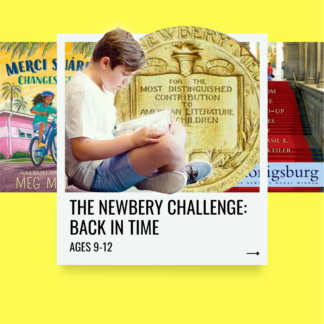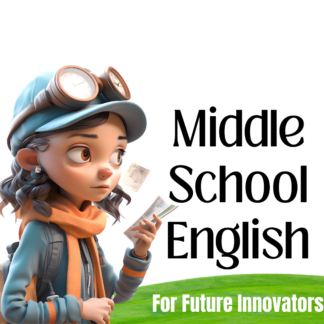Description
???? ?????? ?? ???????? ??:
? inspire learners to think, create, and study hard.
? expose learners to different sectors in the real world.
?️ get students to reduce gaming time.
? encourage learners to do something great!
? help learners develop a curiosity that will drive lifelong learning and skill development.
? equip learners for state testing and their future learning journey.
? maximize student learning despite the hurdles posed by ADHD.
? teach kids how to conquer laziness and to create new habits that lead to success.
? teach young scholars to dress, look, and act professionally when presenting.
? set and work to achieve high standards.
This unique English language arts course enables students to take the tech skills they have acquired to the next level. Here, we are building future business owners, STEM leaders, and entrepreneurs who are high achievers. Students build essential skills for lifelong success while studying literature, poetry, storytelling, essay writing, and speech. We cover the essentials of English language arts while sparking creativity, critical thinking, and broader skills. We want our learners to be active participants, flexing their creative muscles and getting things done!
Students complete a comprehensive English program in the context of diverse sectors, exploring engineering, business, culinary arts, investigative journalism, and the arts.
?Important Note:
All students receive specific feedback on their work through rubrics, peer evaluations, and traditional grades. We intentionally put a little pressure on them and teach them how to handle it. They will rise to the occasion with mental toughness and confidence because they will know what to do and how to do it and can pull it off. We are building leaders who will take on the world as high achievers.
✅ Homework:
Students can expect to have 1-3 hours of homework per week. In addition, they read 5 class novels.
? SNAPSHOT OF OUR DAILY ACTIVITIES:
-To create and maintain a friendly environment, we start class by briefly getting to know each other or catching up with life.
-Students practice a short and sweet grammar/writing mini-lesson
-We have a brief discussion of our class novel.
-The instructor explicitly teaches the day’s concept or skill, which includes modeling. We often have workshop time where students can get things done and ask questions.
-Students complete their projects in class and for homework.
-Some days include student presentations.
? Snapshot of Student Output:
Students will:
–present 5 major class presentations
–read 5 novels, listen to 1 podcast, and read “The Grand Challenges for Engineering” and other texts
–complete grammar and sentence writing exercises each day
–write a business plan
–develop marketing through storytelling
–pitch a product with a demo video
–develop a restaurant concept, recipes, and a menu
–develop, record, and produce a mini-TV show
–investigate a true crime
–write and record a podcast
–curate a museum artifact and create an exhibit
? ????????
???? ?-?: ???????????
Class Novel: ??? ??? ??? ????????? ??? ???? by William Kamkwamba and Bryan Mealer
Students focus on engineering design and communication. Students learn the fundamentals of the engineering design process, compare it to the writing process and a creative process. They read The Grand Challenges of Engineering by the National Academy of Engineering and learn about the Army Corps of Engineering. The culmination involves designing, building, and presenting a model, applying the engineering design process. Students participate in a Socratic Seminar.
???? ?-?: ???????? ????????????? & ????????
Class Novel: ?????? ??????: ?? ???? & ?????? ??? ?? ????? ???? ?????? & ????? ??? ???? by James Clear
Students generate entrepreneurial ideas and develop a business offer. They create a product prototype or service and present it. They are encouraged to do this for real!
⦿ Meeting a market need, developing a business offer
⦿ Understanding an audience/buyer with problems
⦿ Product/Service Development
⦿ Aristotle’s Rhetoric
⦿ Business pitch
???? ?-?: ???????? ????, ?????????? ????, & ? ?????? ??????????
Class Novel: ??? ??? ?? ?????? ??????? ??? ?????? ??????????: ? ???????? ??? ???????? ???????? ????? by Lauren Wilson
We shift now to culinary arts and hosting a TV show. Students explore language arts in the culinary world, writing and presenting menus. They develop a food truck or food cart concept and story, curate recipes, and craft a menu. Then they become a Guy-Fieri-type television host on ??????, ?????-???, ??? ?????, recording their own mini-show on a real place with real food.
⦿ Students develop a restaurant concept, recipes, and a menu.
⦿ Students record and produce their own mini-show
???? ??-??: ????????????? ?????????? & ??????????
Class Podcast: “Kids on the Case” by the website ???? ?? ????????.
Students learn journalistic language arts, investigate crime stories, and practice voice recording and editing. The final project entails creating a podcast episode featuring an investigative story.
⦿ research & reading for information
⦿ writing the podcast
⦿ recording and presenting the podcast
? ??? ??? ?? ????:
??????? ?????????? & ??????????????–We use “workshop time” in class so students will write while the teacher “visits” them on their Google Document or Sheets or Slides, etc. Once we started using this method, we saw nearly a 100% completion rate in student writing! We implement other measures to hold them accountable for their learning, like asking them to verbally give answers if they stop using the chatbox, or telling them to send an “IDK yet” (I don’t know yet) in the chatbox if they can’t yet answer a question. We want to honor the investment parents make in this class and the time students spend. The goal is to build skills and learn! That means students are working, thinking, and writing. Active engagement is the key to success in this class.
?????? ???????? & ???????–The instructor intentionally teaches communication skills and norms. These skills are taught through various methods, including speeches, presentations, and discussions. We also talk about how an online community is established, and students are encouraged–but not forced–to keep their cameras open. This helps all students feel connected to each other as a community of learners. It also helps the teacher picture their faces when reading their writing. They naturally get more attention from their teacher when their camera is on because the teacher’s eyes are drawn to faces, not empty black boxes. In fact, students who don’t have their cameras on are sorted last in the list of students and sometimes, Zoom even hides them! Keeping the camera on is a learning strategy and improves engagement. Also, we feel closer to each other when we see each other. Trust us. ?
??????? ???????–Each class includes explicit, direct instruction with teacher modeling. Students are guided toward mastery of multiple writing skills and understandings so that they grasp the concepts and become independent. Students are held to a high standard of academic writing, including the use of grammar and the construction of sophisticated sentences.
??????? ????????–The back-and-forth work between a student and teacher significantly benefits a student if it is done well. We follow best practices in this area with how we design class time, assignments, and routines. According to Pennington Publishing, effective writing feedback (or grading) is:
• Specific, not general
• Immediate, not postponed
• Routine with a revision / feedback cycle
• Explanatory
• The right amount
• Targeted to the most critical issues
• Varied (written, audio, and video comments)
• Holding students accountable
⛳️ ?????? ?????? ??????? ???? ??????-??? ????????
We have a number of offerings that are good for learners with different needs! To see a comparison chart of our middle school English language arts offerings, click the link: https://drive.google.com/file/d/1C4kPDI-gpxZD1Lap7vwqW9QwWsqQSwZ0/view?usp=sharing
Taught From a Christian Perspective
Our mission is to equip learners’ minds and shepherd their hearts. We want them to have saving faith in our Lord Jesus Christ and then develop a biblical worldview. This means they view their world, themselves, and God in a way that aligns with what the Bible teaches. This brings great peace and understanding to the believer because we serve a good, sovereign God. This course is taught with these goals in mind. In class, we may pray, read scripture, and discuss how to view the content from a Christian perspective.
We have adopted The Master’s Seminary Doctrinal Statement.
Learners Need Explicit Instruction!
Explicit teaching is a method of instruction students desperately need! It is the opposite of a constructivist philosophy whereby students try to construct meaning themselves.
Well…
Instead of leaving students to magically figure out how to write an essay or read or do a geometry proof, we teach explicitly, which is backed by a large body of evidence, and it’s how Mrs. Lemons teaches her undergraduate and graduate teacher candidates in college to teach! We do it this way because it’s how kids learn.
Explicit instruction is “a structured, systematic, and effective methodology for teaching academic skills. It is called explicit because it is an unambiguous and direct approach to teaching that includes both instructional design and delivery procedures. Explicit instruction is characterized by a series of supports or scaffolds, whereby students are guided through the learning process with clear statements about the purpose and rationale for learning the new skill, clear explanations and demonstrations of the instructional target, and supported practice with feedback until independent mastery has been achieved.”
-Explicit Instruction: Effective and Efficient Teaching by Anita L. Archer and Charles A. Hughes.
Anita Archer trained Mrs. Lemons in workshops, and it changed her teaching. Read a little more about the research behind explicit teaching here and here.
To read more about your teaching and learning methods, read Mrs. Lemons’ blog.
The Lemons-Aid Team
Lemons-Aid teachers have a few things in common.
❤️ They love their students and value each of their unique strengths and personalities that make our classes special. Our classes can be described as fun, personal, academic, challenging, and supportive.
? We work to keep learners engaged, so there is always a degree of student accountability for their attention and focus, whether that be through asking them direct questions or by using the chatbox.
? We know all kids can learn, but sometimes things are hard! To support students, we teach them how to develop effective thinking and learning habits that will bring them success in class and in life.
? Building relationships with students so they know we care about them helps us balance the high expectations we have for them regarding their effort, work quality, and behavior. Our students are encouraged, cared for, and they achieve!
????? ??????: English Language Arts
#High-Energy #Skilled #Experienced #Relational #Fun
Karen is the Founder of Lemons-Aid. She has a bachelor’s degree in English, a minor in Education, and a master’s degree in Education Administration from Liberty University. With a teaching certificate and a principal’s license in both Washington and Colorado, she has many years of experience teaching English Language Arts and History / Social Studies at the middle school and high school levels. Additionally, she is TESOL and TEFL certified and enjoys teaching English Language Learners from all over the world. She has worked in private and public schools at every level and is currently an affiliate faculty member at Colorado Christian University, supervising teacher candidates in their undergraduate and graduate teacher education programs. She is a teacher of teachers. A homeschool mom herself, she admits that teaching other people’s kids is easier than teaching her own teenage boys! She lives in the Denver, Colorado area where she cheers on the Broncos, Avs, and the Rockies, but her favorite athletes are her own kids who play hockey and baseball!
? Karen’s Intro Video
???? ?????: English Language Arts
#Experienced #Knowledgeable #Empowering #Patient #Rises Above the Ordinary.
As a certified English teacher, Jenn has taught in some capacity over the course of the past twenty-five years. She has taught middle school and high school English classes in both private and public school settings, tutored international ESL students online, developed and taught literature and public speaking classes for a local homeschool co-op, and homeschooled her own two children. Jenn has a bachelor’s degree in English Education. A strong believer in lifelong learning, Jenn has also taken several graduate-level courses related to teaching. Jenn enjoys spending time with her husband, Mark, and their two teenagers. She enjoys taking day trips close to where they live in upstate New York. In her spare time, Jenn enjoys singing and performing in plays. Additionally, she enjoys curling up on the sofa to read a good book. More than likely, one of her four cats will be curled up at her feet.
? Jenn’s Intro Video
??????? ???????: Elementary
#Fun #Inspiring #LoveForLearning
Kristen has a Bachelor’s Degree in Education with a minor in child psychology from Liberty University. For nearly a decade, she has worked in elementary school classrooms, as a private tutor, and as an online ELL teacher. While passionate about education in general, her favorite subjects to both study and teach are reading, grammar, and writing. She and her husband are actively involved in a church where she works as a Sunday School teacher and Children’s Ministry teacher to ages 4-6. No matter where she is teaching, Kristen tries to find ways to connect with her students and to create an exciting classroom that builds a passion for education. It is her desire to not only teach a subject but also to foster a love of learning which inspires students to want to learn more even once the class is completed. Kristen lives in Virginia with her husband, daughter, and their new baby boy! In her spare time, Kristen loves to create teaching content such as interactive lesson plans, worksheets, and more! She also enjoys doing family outings and crafting.
? Kristen’s Intro Video
???. ???:
Elementary
#Engaging #Fun #Patient #Kind #Encouraging
Ali has a Bachelor’s Degree in Early Childhood Education and has worked with children over the last 11 years. She taught for 6 years in public school, 2 years in Kindergarten and 4 years in First Grade. She has worked as a reading tutor and ESL teacher online for the last 4 years; she has also tutored children in-person in reading, writing, and STEM. Ali believes that every child is a natural learner; she believes that an educator’s goal is to engage each child in the way that they learn best! She is passionate about creating a safe and FUN environment that teaches the whole child. Each time she enters a classroom, whether it is in-person or online, you can find her singing, playing games, and making learning fun. Ali lives in Missouri, near St. Louis with her husband and fur-child (an 80 lb. German Shepherd who doesn’t know how big he is). In her free time she loves reading, writing, crafts, hiking, working out, and spending time with my family.
? Ali’s Intro Video
???????? ????????: English
#Energetic #Kind #Encouraging #Authentic #Enthusiastic #Guide
Kim loves life, loves people, and loves learning! She views each student as a team member with his or her own unique talents, skills and life experience to bring to the group. She loves helping students expand their knowledge and sharpen their skills to reach their greatest potential. Kim has a Bachelor’s degree from Cairn University in secondary Education with certification in English (NY and PA) and endorsement in music. Her classroom experience has focused on English, PE and Bible education, but she has tutored in a variety of areas including ESL, special ed, math, history, science and music (piano and voice). She lives in northeast PA with her wonderful family. She has homeschooled all of her seven children. The youngest five are still in school and ensure that every day is an adventure. Kim also coaches intramural and competitive sports throughout the year. She loves music, sports, reading and taking long walks up her dirt road admiring wildflowers, listening to birds and reflecting on what she is learning in life!
? Kim’s Intro Video
Christian Teachers on Outschool
We want to serve you on Lemons-Aid! For first-time learners on Lemons-Aid, you can use the coupon code Newbie20 to get $20 off your first class.
However, if the schedule doesn’t work for you, we will happily teach you on Outschool, but we can’t talk about Jesus.
Use this referral code and get $20 off your first class on Outschool: LEMONSA2020






